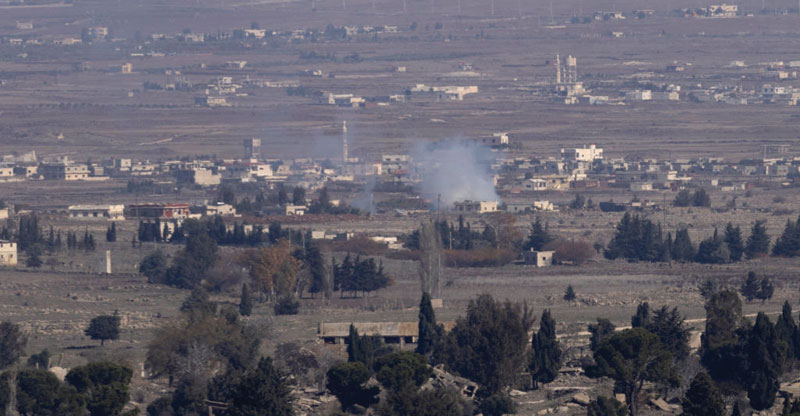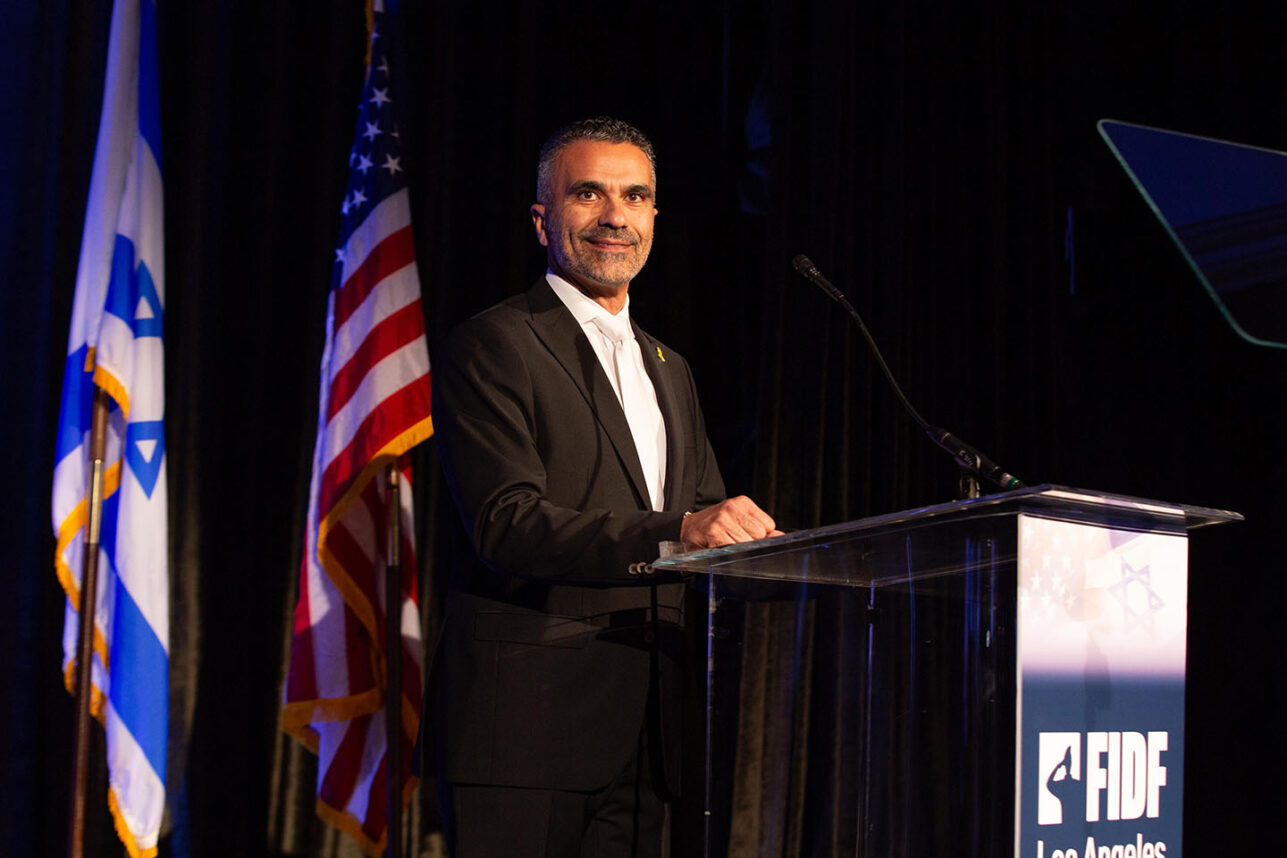It’s customary for Israeli prime ministers to express their wishes for peace on the eve of the major Jewish holidays. But with speculation rife about how the war in Iraq will affect the prospects for Israeli-Palestinian peace, a mid-April interview with Prime Minister Ariel Sharon — notable more for Sharon’s inflection than for any startlingly original messages — has thrown Israel’s political establishment into a frenzy.
After the initial furor, however, few on the left or right believed Sharon would be able to make significant progress toward peace with the Palestinians, because of the list of tough demands he is making.
The most controversial is Sharon’s new insistence that the Palestinians give up the "right of return" for millions of Palestinian refugees and their descendants, even before negotiations begin based on the "road map" toward peace.
In the interview with the daily newspaper Ha’aretz, Sharon injected a new time element: He said after the war in Iraq, new opportunities had opened up for a settlement with the Palestinians and that agreement could be reached "faster than people think."
He also expressed moral and economic concerns related to continued Israeli occupation of the West Bank and Gaza Strip.
"I do not think we should rule over another people and run their lives," he declared. "I don’t think we have the strength for that. It’s a very heavy burden on the public, and it raises ethical problems and heavy economic problems."
For the first time, Sharon mentioned names of settlements that Israel might have to give up in a peace deal.
"Our whole history is bound up with some of these places: Bethlehem, Shiloh, Beit El," Sharon said. "And I know we will have to part with some of these places. There will be a parting from places that are connected to the whole course of our history."
Some right-wingers threatened to leave the government over Sharon’s comments. Left-wingers said that if the right-wingers jump ship, they would consider joining.
Arye Eldad of the far-right National Union said his party’s executive would meet soon to table its red lines and then would present Sharon with a list of conditions for staying in the government.
"We intend to do all we can to stop Sharon from facilitating the establishment of a Palestinian state," Eldad said. "We will mobilize all the support we can in the government, the Knesset, public opinion at home and abroad. And if we have to leave the government to do so, we will."
Housing Minister Effi Eitam, leader of the hawkish National Religious Party (NRP), was less apprehensive.
Sharon’s statement was worrying, Eitam said, "because it is the first time he has talked about dismantling specific settlements like Shilo and Beit El."
Yet Eitam implied that nothing along those lines was likely to happen, precisely because of the hawkish composition of the Sharon government.
"Sharon chose to form a coalition with the NRP and National Union," he said, "and it’s obvious that the government in its present form will not part with Beit El and Shiloh."
Left-wingers questioned Sharon’s sincerity. The secretary-general of the Labor Party, Ophir Pines, accused Sharon of putting on "his familiar mask of moderation," trying to please the Americans after the war in Iraq.
"On the one hand, he backs the road map for peace with the Palestinians, while on the other he sends AIPAC [the American Israel Public Affairs Committee, the main pro-Israel lobby in Washington] to Congress to lobby against it," Pines charged.
Legislators from the dovish Meretz Party were equally skeptical.
"For three years, we’ve been hearing about painful concessions — and it really is painful, because during all these years, not a single concession has been made," Meretz leader Yossi Sarid quipped.
Still, Labor leaders say they would be ready to join Sharon’s coalition if he is serious about making peace.
But, said Pines, "the litmus test of his seriousness will be dumping the hawkish right-wing parties, the National Union and the NRP, because as long as they are in the government, no progress will be possible."
Pundits don’t expect this to happen. In the speech, Sharon continued to insist on demands that the new Palestinian Authority prime minister, Mahmoud Abbas, will find difficult to meet.
Progress, Sharon said, "depends first and foremost on the Arabs."
The Palestinians, he said, would have to install a new leadership, fight terrorism, carry out reforms, stop incitement, dismantle terrorist organizations and "recognize the Jewish people’s right to a homeland and the existence of an independent Jewish state in the homeland of the Jewish people."
Moreover, Sharon intimated, before Israel even started implementing the road map, the Palestinians would have to give up the "right of return" for Palestinian refugees and their descendants. Only that and recognition of Israel’s right to exist as a Jewish state could provide the basis for an end to the conflict, he said.
Many Israelis feel the Palestinian insistence on the right of return — which could swamp Israel with millions of Arabs, ending Israel as a Jewish state — is code for the destruction of Israel.
German Foreign Minister Joschka Fischer warned during an early-April visit to Israel that demanding a concession on the right of return from the outset would kill negotiations before they even start.
Some Israeli pundits agreed.
"Now Sharon is conditioning his agreement to Palestinian statehood on their giving up the ‘right of return,’ which even the moderate Palestinians see as their main bargaining chip in negotiations for a final settlement," Yediot Achronot’s veteran diplomatic analyst, Nahum Barnea, wrote. "Trying to make this a precondition is a sure way to torpedo the talks or the road map before they get under way."
Israel now is trying to get the "right of return first" idea incorporated in the road map.
Given Fischer’s reaction, the chances of success are probably nil. Yet, if the United States and the other players who helped draft the road map — Russia, the European Union and the United Nations — present the road map as is, Sharon probably will have trouble getting it through his right-leaning government.
That means that if Sharon is as serious as he says he is about peacemaking, he may have to consider shuffling the coalition deck somewhere down the road.
Indeed, on this score, his interview — and the reactions to it — might have been a taste of things to come.





















 More news and opinions than at a Shabbat dinner, right in your inbox.
More news and opinions than at a Shabbat dinner, right in your inbox.